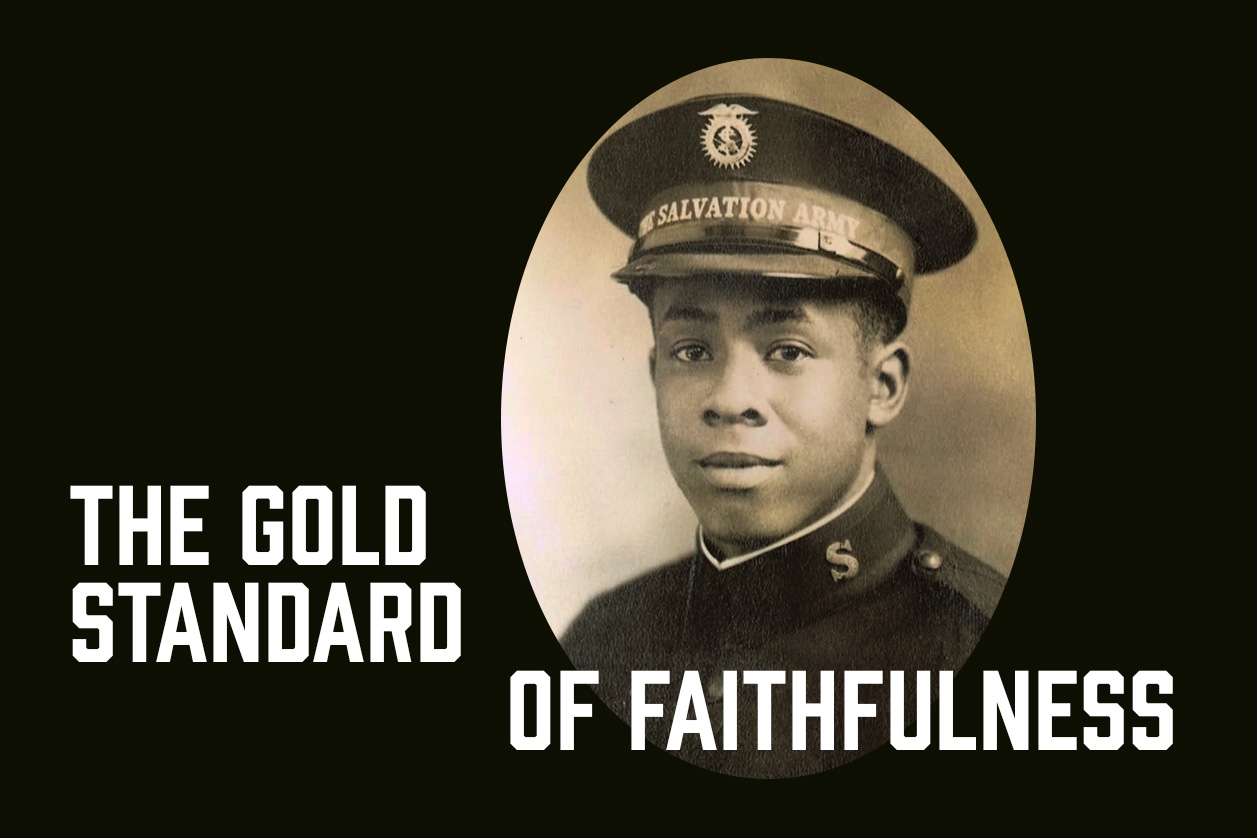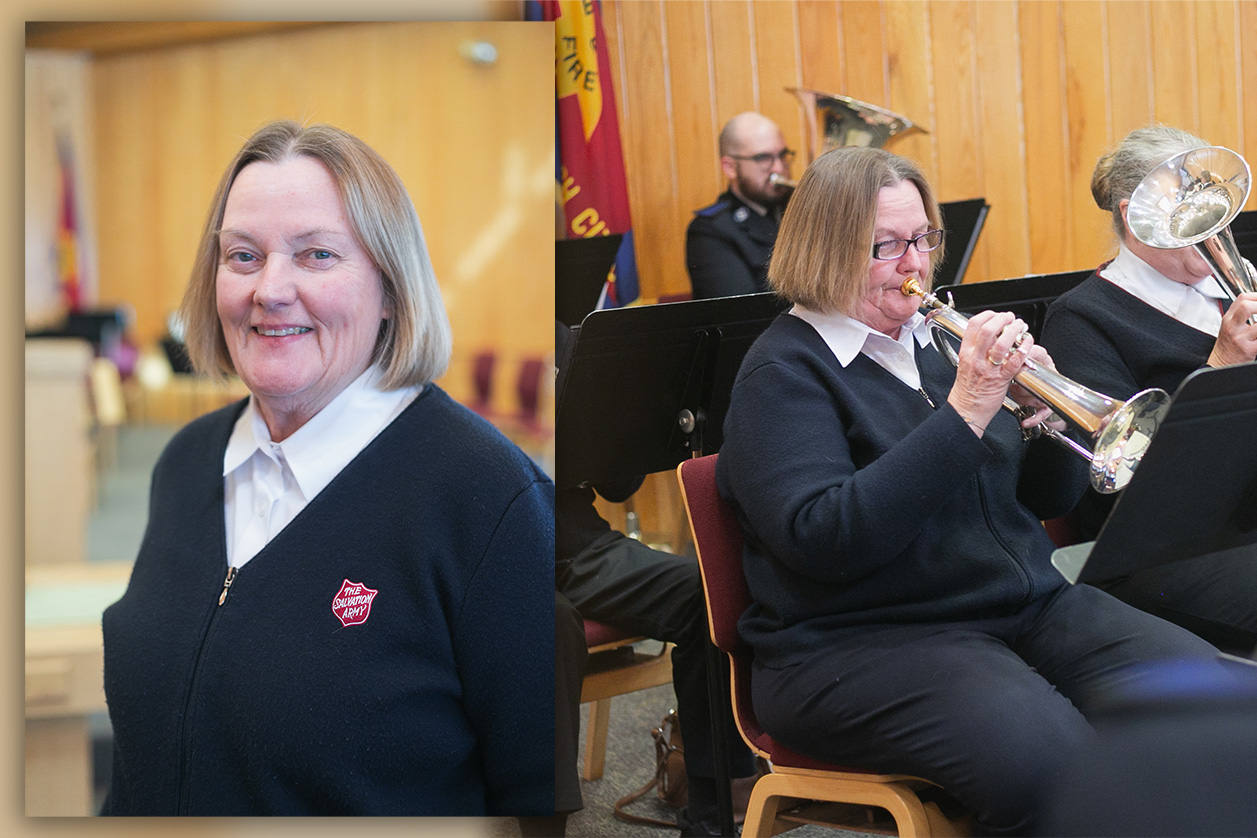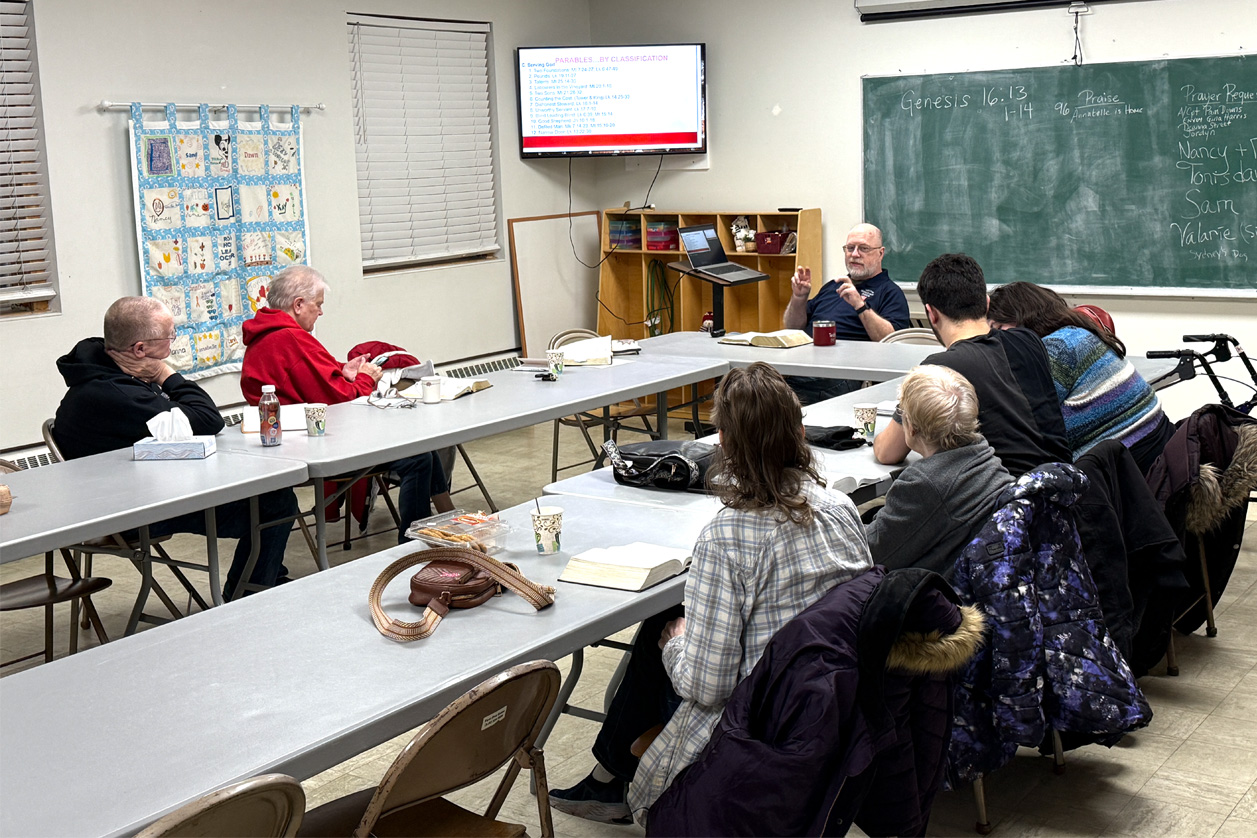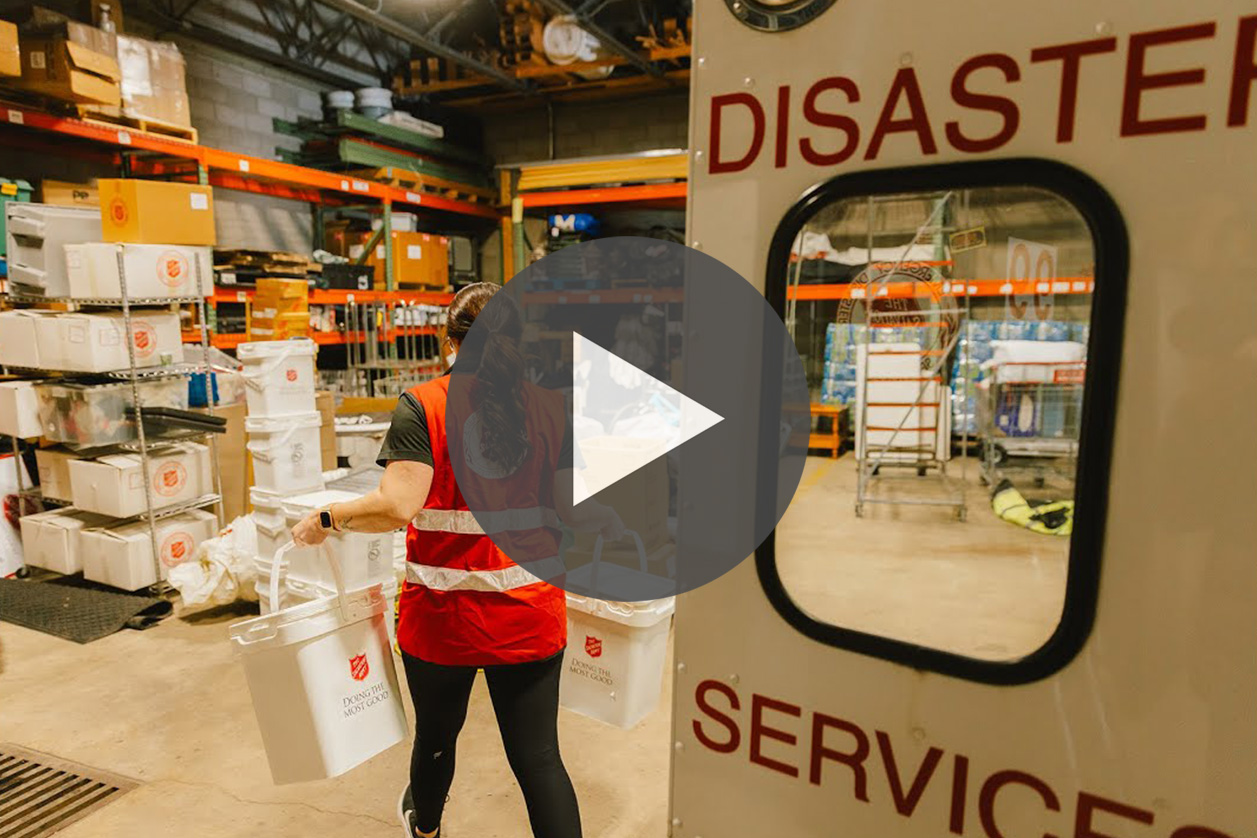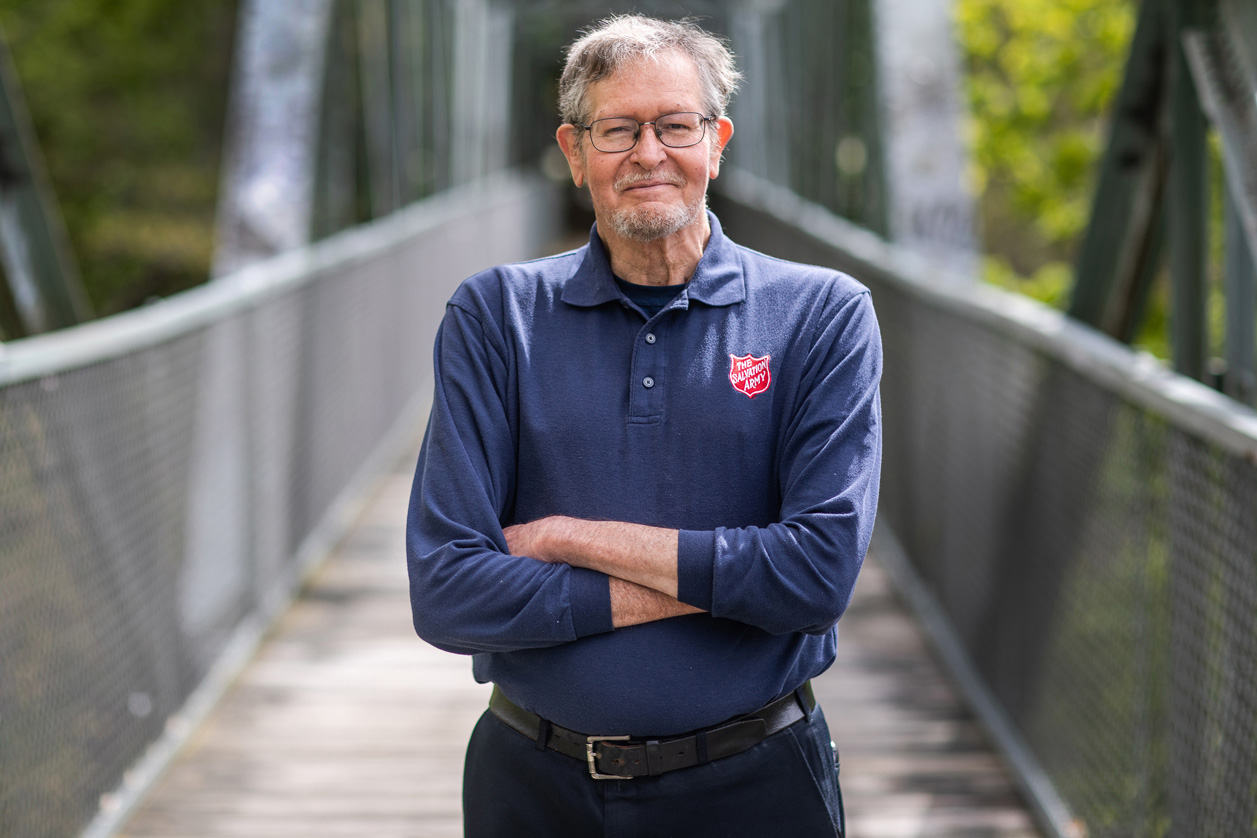
Volunteer Spotlight – David Cornish
by Hugo Bravo
Every time David Cornish walks from his home to The Salvation Army church in Willimantic, Conn., he crosses a footbridge that connects the downtown to the city’s residential area. The footbridge is a popular spot for hiking and taking photos, but for David, it’s also a reminder of the city’s poverty.
“On any day, you can see homeless squatters setting up camp in the woods under the bridge. It’s one of a half dozen homeless villages in Willimantic,” says Cornish. “This was once a thriving mill city, but as those mills closed, there was no real industry left anymore.”
“Now, Willimantic has many retirees and college students, two groups that have great hearts for the needy and are always looking for ways to help.” says Cornish. “But you need a unique mindset to be part of the Army here. Ours corps can be transitional for many. You won’t see many generational families here because people always leave, come back, leave, and come back again.”
David was one of those who came, went, and returned to Willimantic. He first met Salvationists in 1970 when he attended the University of Connecticut. Many of them were studying music and music education, as was David. He joined peer groups with them and met Vicki, a Salvationist whose parents were pastors in New Haven. In the summer, he spent time at their New Haven Corps, where he worked with teens and taught music.
“I had never experienced a church family with the mission of The Salvation Army. As a child of the 70s, their principles were in line with my own; that of helping and serving the less fortunate,” says David.
In his childhood, David had been part of a church that was traditional and rooted in customs. The pastor had always talked about the structure and history of the Church, but not so much about Jesus or the importance of being with others in the community.
“We Salvationists love our history and traditions, but once we are done worshipping inside, we find the door and go outside to share what we have,” says David. He became a soldier in 1981, five years after marrying Vicki. As their family grew, they lived throughout Southern New England, serving in Lowell, Manchester, and Hartford.
Now retired, David and Vicki live in Willimantic, 20 minutes away from the university where they first met. Though she attends the Manchester Corps and serves with their daughter, Young People Sergeant Major (YPSM) Patti Maxwell, David has made Willimantic his place of worship. Volunteering is also his way of staying active and known around the community.
“When I volunteer, I’m always around people who are sensitive to the fact that I’m a senior citizen and I have some health issues,” says David, who suffered a stroke in 2016. “Someone always knows where I am and what I’m doing. That’s a big benefit for older people, especially if they live alone or have physical disabilities.”
David’s stroke caused him to lose some vision in his right eye and forced him to retire early. It left him unsure of what his future would bring. But now he says his health situation is not a crutch, but rather a tool for connecting with others. Admitting vulnerability made it easier to talk to the people whom he serves.
“When people come for help, I share my own limits to let them know that I’ve also felt broken at one point. At The Salvation Army, what they say to us is confidential, and they are safe here,” says David.
That assurance is what he strives for today. Years ago when David served in Lowell, a young officer told him that their main job was to help people understand that the church was a safe space for them to be.
“Those were very wise words, even though I didn’t quite understand them at the time,” says Cornish. “It’s important to represent the moral and spiritual side of the Army, and to do everything we can to provide services to the community or direct them to someone who can. But when I’m helping someone, I want them to know that above all, they’ll be safe in our church.”
Read more from the latest issue of saconnects.

